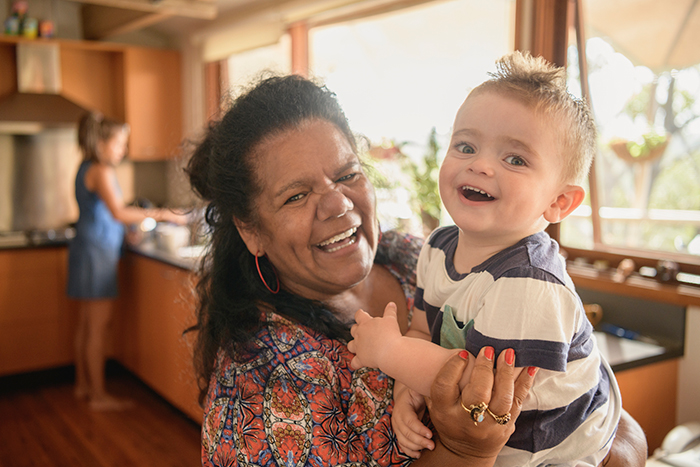Get our independent lab tests, expert reviews and honest advice.
When accessing your loved one’s super after they die is a nightmare

Need to know
- Complaints about how super funds process the super left over when someone dies have continued to rise
- First Nations advocates, legal experts and academics say the system isn't working
- Super Consumers Australia says the government should implement a review to fix this process
Thinking about where any leftover super should go when you die is an unpleasant and complex task, and one many people don’t ever turn their mind to.
However, you can give your fund instructions on where to send this money. This process is called making a death benefit nomination. Making these nominations is complex and can be highly technical. The stakes are high if you don’t follow all the fiddly rules; if your nomination isn’t validly made and binding, or has lapsed, your super fund will have discretion over where to send your money. (See our introduction to death benefit nominations for more information on the process.)
Between 2021 and 2023, complaints to the Australian Financial Complaints Authority (AFCA) about customer service around death benefits doubled
There’s mounting evidence that the current process isn’t working well and is causing further turmoil for people already facing the loss of a loved one. Between 2021 and 2023, complaints to the Australian Financial Complaints Authority (AFCA) about customer service around death benefits doubled and complaints about super funds delaying death benefit claims grew sevenfold.
Comprehensive review is long overdue
We’ve previously covered cases where the fund’s decision on who gets any leftover super may not be in line with community expectations.
In one particularly concerning case where an alleged perpetrator of domestic violence was able to access the super of the person they abused after they passed away, AFCA noted that “even if the relationship had fallen below community expectations and standards in respect of domestic violence, the law does not recognise this as a reason to prevent a person from receiving a death benefit (where the relationship otherwise appears to be intact) except in more extreme instances.”
Super Consumers Australia has heard from members of the public who describe a lengthy process that makes it complicated to claim this money, and from others who are unhappy that their fund could have the final decision over who gets their remaining super.
Experts say a comprehensive review of the system is long overdue.
Obstacles for First Nations people
One key rule about where your super goes after you die is that you can only leave it to a ‘dependant’ or your legal personal representative, (such as the executor or administrator of your will). This means that if you try to leave it to other family members, like siblings or nieces and nephews, the nomination will most likely be invalid, and the fund will have the final say on who gets your money.
Advocacy groups point to the inflexibility of this system, which does not recognise First Nations kinship structures, and means people can’t leave their money to those they consider close family members.

The 2017 banking royal commission recommended that the government consult on issues that First Nations people faced in making binding death benefit nominations. Treasury consulted on the topic in 2019 but the government has yet to follow up on this work.
Alex Price-Busch, a financial counsellor at Indigenous Consumer Assistance Network, says First Nations people trying to access their loved one’s super face a “lot of barriers”.
One ongoing issue is that First Nations people may not have the required documentation to access the super of a family member who has died or even to work out which super fund was managing that person’s money.
He says reforms to make it easier to discover where a loved one had their super “would help out a massive number of people”.
Price-Busch also says First Nations people should be involved in any law reform in this area. “Having input on what would improve the experience for them would go a long way.”
He says improving the system would significantly impact communities. “Hopefully, people will be able to access their loved ones’ super, and that wealth would flow to their children. Then, we could start to see people making long-term financial improvement.”
A proposal for a simpler system
The rules around death benefits are complex, partly because super funds are governed by trust law. The rules can also vary across funds as each one has its own trust deed which sets out how it can distribute this money.
The Law Council of Australia has recognised the death benefit system isn’t working well. Earlier in 2024, it sent a proposal to the government on how the system could be reformed.
“It’s a complex and quite unwieldy arrangement, which seems to be producing a disproportionate number of disputes that take significant time (to resolve),” Darryl Browne, Chair of the Law Council of Australia’s National Elder Law and Succession Law Committee, told Super Consumers Australia of the current set-up.
The council’s proposal is that all leftover super will be treated as part of the deceased person’s estate (and covered by their will) except where the person had made a valid nomination. Further, the proposal says all super funds must only offer binding, non-lapsing nominations rather than the variety of nominations they currently allow.
The council’s proposal is that all leftover super will be treated as part of the deceased person’s estate (and covered by their will) except where the person had made a valid nomination
“One of [the Law Council’s] objectives was simplicity,” Browne says. “Super is damn complex; there is disengagement that happens because it is so complex. So we thought: ‘Let’s make this simple’.”
The Law Council consulted widely across the industry, and while some trustees were more supportive of the proposal than others, Browne says “there was unanimity that the current system doesn’t work”.
Browne says the council’s proposal removes the paternalism of the current system, where your super fund may have the final say on who gets your money after you die. “It’s an antiquated notion in society that somebody else can make a better decision about what happens with your money than yourself,” he says.
The key things to remember about death benefit nominations in super.
– Your super isn’t automatically covered by your will.
– You can either leave your super to a dependant or to a legal personal representative (in this case, your super becomes part of your estate).
– Your nomination may lapse (usually after three years). When this happens, your nomination can still be used as a guide by your fund, but you can renew it for greater peace of mind.
– Making a valid nomination can be very technical; talk to your fund if you’re unclear about the process or how to make a valid nomination.
Expert view: A review could show the way forward
Dr Tobias Barkley, a law lecturer at La Trobe University, has been analysing decisions made by AFCA around death benefit payments.
People have 28 days to lodge a complaint to AFCA if they’re not happy with a fund’s decision on a death benefit payment.
“What I found is that AFCA makes most decisions on the basis of someone being financially dependent, and AFCA has a relatively strange understanding of financial dependence,” Barkley says.
In Barkley’s example of how AFCA determines financial dependence he describes a situation in which the tribunal will view an adult child receiving a small amount from their parents, say $20 a month for a couple of years to help with bills, as proof of financial dependence. In contrast, Barkley explains, AFCA doesn’t see a much larger one-off payment, like a house deposit, as establishing financial dependence.
The implications of this black-and-white approach are significant. “The financial dependents almost always get [the deceased’s remaining super],” Barkley explains, while people who are ruled as not being financially dependent miss out.
Barkley says a common problem is that people who make nominations aren’t aware of the narrow class of people who can be dependents
Barkley’s research also found that AFCA rarely considers the wishes of the deceased where the nomination isn’t binding.
Barkley says a common problem is that people who make nominations aren’t aware of the narrow class of people who can be dependents. This problem means people’s nominations are invalid, and the fund controls where their money goes.
Another recurring issue that Barkley saw in the AFCA decisions was that people had instructed their fund to pay their partner and the nomination remained in place after they broke up, leading to disputes.
Barkley thinks the Law Council might be on the right track with its proposal to cut through the complexity in this area. “In terms of simplicity, it’s fantastic. I fully support a much simpler process.”
He also supports a review of the process by an independent body, like the Australian Law Reform Commission.
Nomination process ‘almost incomprehensible’
The Australian Securities and Investments Commission (ASIC) recently completed the first phase of a project looking at the death benefit process. It reiterated that super funds must approach claims for these benefits in a way that’s “timely, clear and respectful”. Its survey of super funds’ explanations of death benefits found “the quality of information provided was poor in a few areas”. The regulator also called on funds “to urgently consider whether their arrangements for dealing with death benefit claims are fit for purpose”.
However, the death benefit nomination process isn’t just complicated; Financial Counselling Australia, who has also called for a review of the system, says it’s “almost incomprehensible”.
We need to reimagine how super is managed when someone dies to make the process fairer and more efficient for all Australians
Rebekah Sarkoezy, Super Consumers Australia policy manager
Super Consumers Australia policy manager Rebekah Sarkoezy says if super funds provided better resources to help make nominations it would be an improvement, but it wouldn’t come close to eliminating all the system’s recurring problems.
“There are many things that funds control and could be doing better, but the problems run much deeper. We need to reimagine how super is managed when someone dies to make the process fairer and more efficient for all Australians.”
Problems persist without resolution
Back in 2017, the Australian Law Reform Commission recommended reviewing the laws governing death benefit nominations to curtail the harm of elder abuse. Some seven years later, we’re still waiting for this review.
Similarly, the 2017 banking royal commission recommended the government consult on issues that First Nations people faced in making binding death benefit nominations. Treasury finished this consultation in 2019 but the government has yet to follow up on this work.
“We’ve known for years about the massive problems with this system, but we’re continuing to see delays and disputes that make life even more difficult for people who are already grieving the loss of a loved one,” says Sarkoezy.
A review could point the way forward to a simpler, fairer process
Rebeccaa Sarkoezy, Super Consumers Australia
“We’re also increasingly aware of the barriers that First Nations people face in accessing the super of loved ones who have died, and it’s vital we consult with First Nations groups to improve the system.
“What happens to your leftover super when you die is a vital part of the system, but it’s hard to find anybody who thinks the current set-up is working well.
“A review could point the way forward to a simpler, fairer process.”





